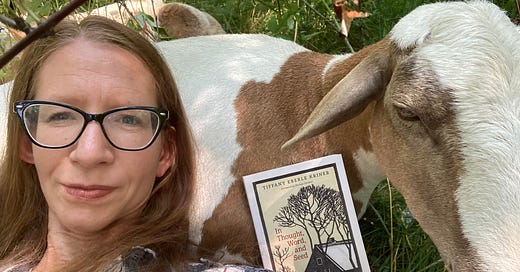Earth meets heaven
Tiffany Eberle Kriner shares with us about her new book, *In Thought, Word, and Seed: Reckonings from a Midwest Farm*
Keep reading with a 7-day free trial
Subscribe to Church Blogmatics by Beth Felker Jones to keep reading this post and get 7 days of free access to the full post archives.




